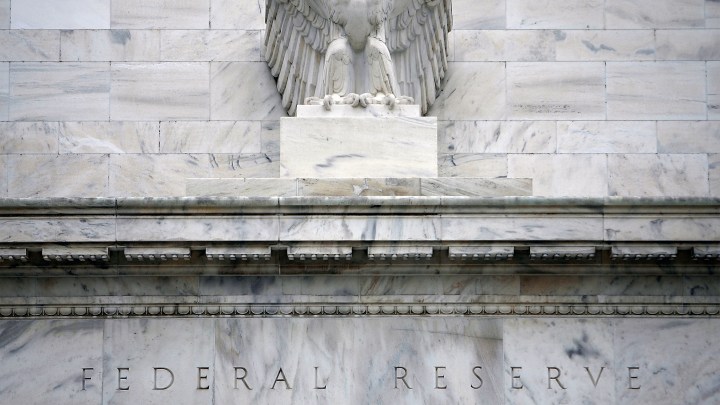
Should the Fed decide who gets bailout cash?

Following uproar about bailout decisions during the 2008 financial crisis, the Dodd–Frank Wall Street Reform and Consumer Protection Act took away powers from the Federal Reserve that allowed it to pick and choose who gets bailed out. Now some are arguing those powers should be restored.
Treasury Secretary Steven Mnuchin believes the economic fallout from the coronavirus and efforts to contain it may require more financial tools than regulators currently have. He told ABC’s “This Week” that “certain tools were taken away that I’m going to go back to Congress and ask for.”
After the Great Recession, there was a backlash. People were upset that the Fed came to the rescue of some firms outside the banking system, but not others. So Dodd-Frank took away some of that power and created a new rule that said the Fed can’t pick and choose who gets help.
“Roughly speaking, they have to give it to everybody or nobody,” said John Cochrane, a senior fellow at Stanford’s Hoover Institution. He said the idea was to prevent the Fed from getting sucked into the business of picking winners and losers. He gives this example.
“Suppose that airlines will get in trouble. There will be an airline bailout package, a populist backlash to that,” Cochrane said. “The Federal Reserve should not be the one making that call if it’s going to stay a politically independent, technocratic agency.”
Better, he said, for politicians to make those kinds of decisions. Donald Lamson disagrees. He’s a lawyer and an independent consultant who worked on parts of Dodd-Frank. Lamson said Congress went too far in hamstringing the Fed.
“This was one of the major mistakes Congress made,” Lamson said.
He said he’d rather have experts at the Fed decide whether a company needs help, and said they can do so quickly.
Darrell Duffie agrees. He’s professor of finance at Stanford’s Graduate School of Business. He gives this example:
“Suppose some individual nonbank were to get into serious trouble financially,” Duffie said. “Were it to fail, it would create a real crater on the economy.”
Under current rules, the Fed would not be able to step in — can’t help one company; you have to help them all.
“The Fed would just have to sit on its hands until this developed into a more significant crisis and multiple firms were in trouble,” Duffie said.
The new coronavirus and efforts to contain it threaten to take down industries and firms, and some will need emergency loans. The issue of whether to return power to the Fed is ultimately about who’s going to pick who gets that help, who’s going to hand it out, and how quickly can they do it.
There’s a lot happening in the world. Through it all, Marketplace is here for you.
You rely on Marketplace to break down the world’s events and tell you how it affects you in a fact-based, approachable way. We rely on your financial support to keep making that possible.
Your donation today powers the independent journalism that you rely on. For just $5/month, you can help sustain Marketplace so we can keep reporting on the things that matter to you.


















